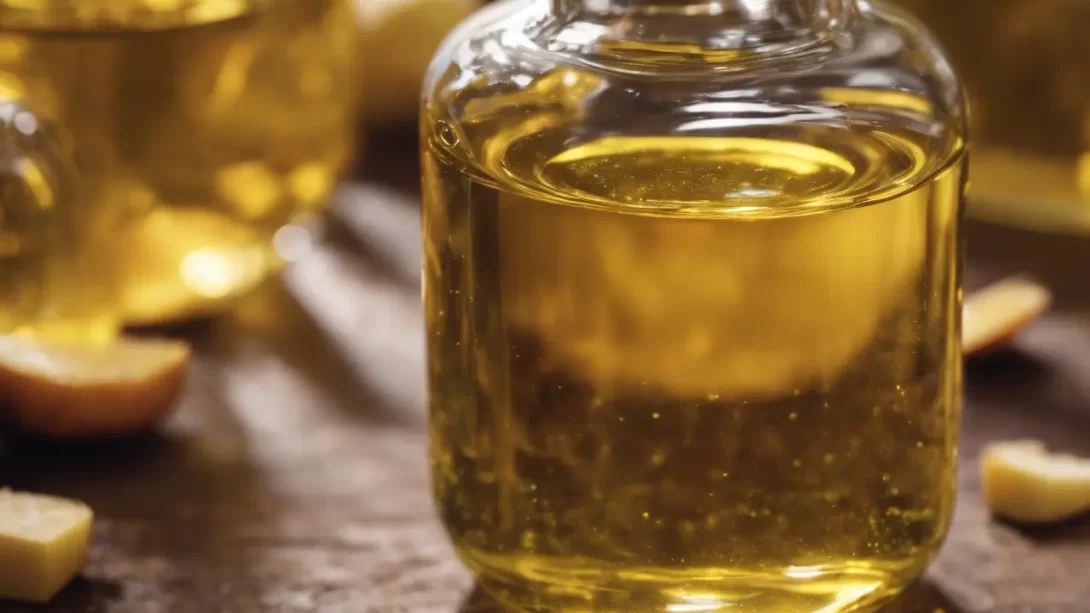Vegetable oil is a staple in kitchens worldwide, used for everything from frying and baking to salad dressings. However, like all food products, vegetable oils have a shelf life, and using them beyond this period can raise health and culinary concerns. This article explores what happens if you use expired vegetable oil, emphasizing the need for awareness in food safety practices.
Vegetable Oil
Vegetable oil is derived from the seeds or other parts of various plants. Common types include canola, sunflower, olive, and soybean oil. The production process typically involves extraction, refining, and sometimes blending. Most vegetable oils have a shelf life of about one to two years, though this can vary based on the type of oil, processing, and storage conditions. It’s important to note that the shelf life of oil is affected by exposure to light, heat, and air, which can accelerate degradation.
Signs of Expired Vegetable Oil
Identifying expired vegetable oil is key to avoiding its use. The most common signs of spoilage include:
- Color Changes: Fresh vegetable oil should have a clear, light appearance. Any darkening or cloudiness can indicate it’s past its prime.
- Odor: Rancid oil often develops an off, stale, or paint-like smell. A fresh, neutral odor is a sign of good oil.
- Texture: If the oil feels sticky or has a thickened texture, it may have gone bad.
While best-before dates on packaging can guide you, these signs are more reliable indicators of spoilage. It’s always best to trust your senses when determining the quality of oil.
Potential Risks of Using Expired Vegetable Oil
Using expired vegetable oil can pose several health risks. When oils go past their shelf life, they may undergo oxidative rancidity, where exposure to air, light, and heat causes the oil to break down and form harmful compounds. These compounds, such as aldehydes, ketones, and peroxides, can be detrimental to health if consumed over time. They are associated with increased oxidative stress in the body, which is linked to chronic diseases including heart disease, cancer, and neurodegenerative conditions.
Rancidity and Its Effects
Rancidity is a chemical process that significantly affects the quality and safety of vegetable oils. There are two main types of rancidity – oxidative and hydrolytic. Oxidative rancidity, the most common type in vegetable oils, occurs when the fats in the oil react with oxygen. This process not only leads to the development of off-flavors and odors but also results in the formation of free radicals and other harmful compounds. These by-products of rancidity can contribute to inflammation and have been linked to various health issues, as previously mentioned.
Cooking with Expired Vegetable Oil
Cooking with expired vegetable oil can affect both the taste and nutritional value of food. Rancid oil can impart an unpleasant flavor and odor to dishes, potentially ruining the taste. Additionally, the breakdown of fatty acids in expired oil means that it may have a lower nutritional value compared to fresh oil. The presence of harmful oxidation products can also negate any health benefits the oil originally provided, such as healthy fats and vitamins. It’s important to consider these factors not only for the quality of your meals but also for your overall health.
Safe Storage and Disposal of Vegetable Oil
Proper storage can significantly extend the shelf life of vegetable oil and maintain its quality. To store vegetable oil effectively:
- Keep it in a cool, dark place: Light and heat accelerate the degradation of oil. Store it in a pantry or cupboard away from direct sunlight and heat sources.
- Use airtight containers: Exposure to air can hasten rancidity. Keep the oil in its original container or transfer it to an airtight bottle or jar.
- Avoid cross-contamination: Use clean utensils when handling the oil to prevent introducing contaminants.
If you find that your vegetable oil has expired or turned rancid, it’s crucial to dispose of it responsibly. Pouring it down the drain can cause plumbing issues and environmental harm. Instead:
- Small amounts: Absorb with paper towels and dispose of them in the trash.
- Large quantities: Look for local disposal or recycling programs that accept cooking oil.
Health Considerations and Alternatives
Given the potential health risks associated with using expired vegetable oil, it’s important to regularly check your oils and replace them when necessary. If you’re unsure about the quality of your oil, it’s safer to err on the side of caution and not use it. Consider using fresh oils known for their stability, like extra virgin olive oil or coconut oil, which have longer shelf lives and are less prone to rancidity.
Conclusion
In conclusion, while vegetable oil is a versatile and commonly used ingredient in cooking, it’s vital to be mindful of its shelf life and storage conditions. Using expired or rancid vegetable oil can have undesirable effects on both your food and health. By properly storing your oils and being attentive to signs of spoilage, you can ensure that you’re cooking with safe, quality ingredients. Remember, good food safety practices are key to maintaining a healthy and enjoyable cooking experience.



